
Contents



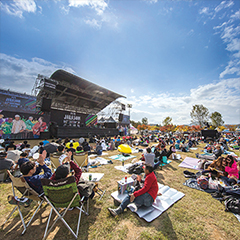
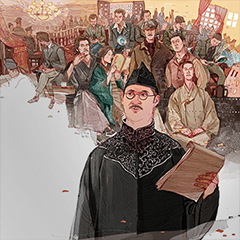
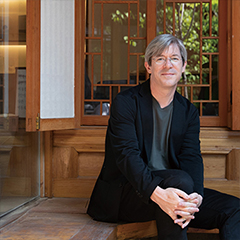

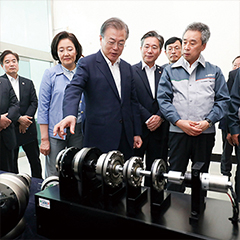


People · Written by Lee Hana Photographed by Kim Sunjoo
Comedies Are a
Fun Challenge
‘Parasite’ Subtitle Translator
Darcy Paquet, an American movie critic who has lived in Korea for close to 20 years, wears many hats in the
Korean film industry: critic, lecturer, author, translator, artistic director and part-time actor. Most recently,
he grabbed the media spotlight as translator of the English subtitles for director Bong Joon-ho’s “Parasite,”
which won the top prize at the Cannes Film Festival this year. The black comedy delivers a specific
kind of humor through its dialogue. Critics have praised the quality of the movie’s subtitles, saying they allow
foreign audiences “to laugh in all the right places.” In an interview with Korea. net on June 14,
Paquet said he was happy that the art of subtitle translation was in the news and that a close partnership with
the director, combined with good planning and ample time for subtitle revision, ultimately led to a better result.
A soft-spoken man with eyes that light up when discussing Korean cinema, the Massachusetts native
spoke about working with Bong and other famous Korean directors and how he found his niche
in Korean cinema. The following are excerpts from the interview.

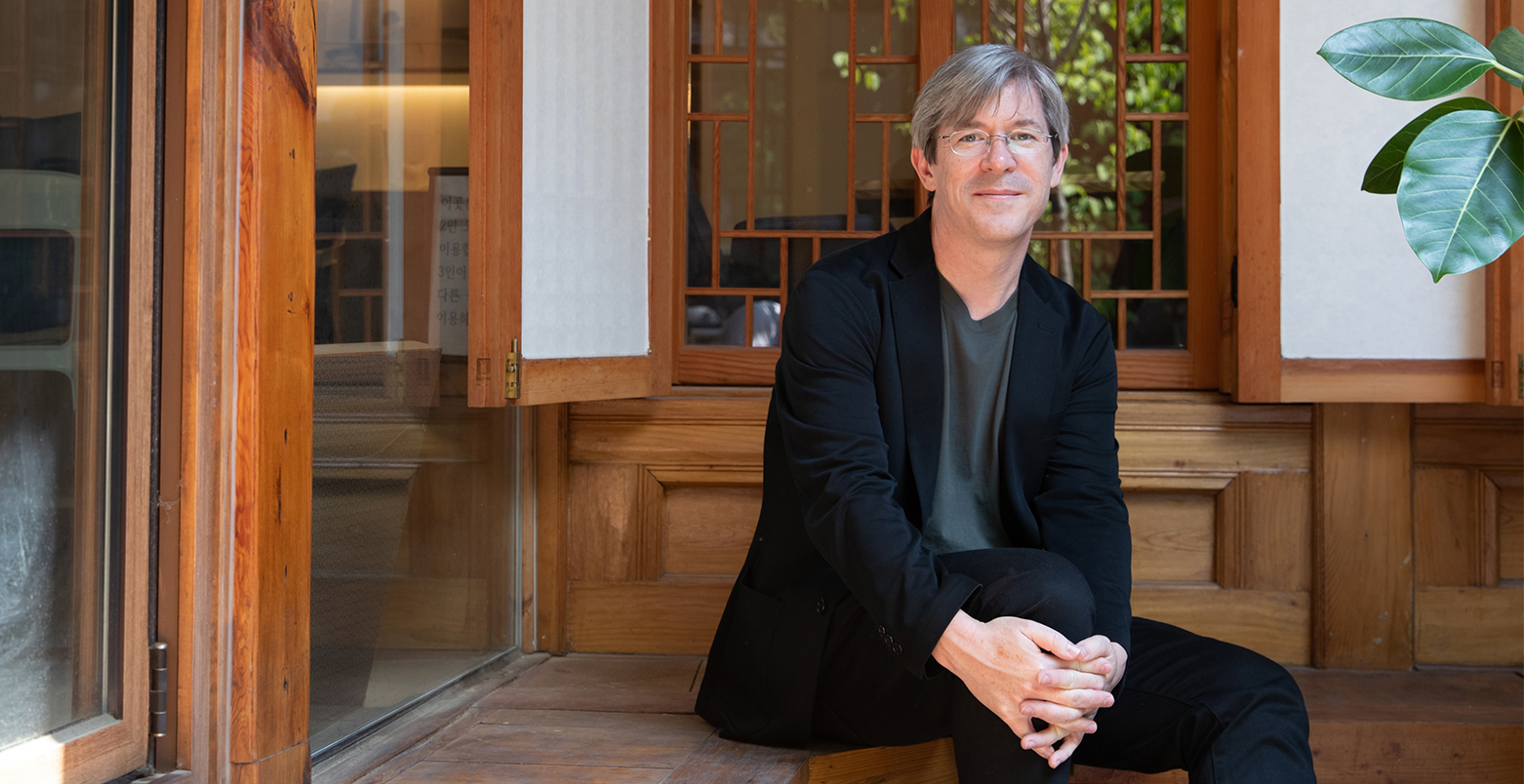
How did you get started in the Korean film industry?
I came to Korea in 1997 to teach English at Korea University. At the time, movies were just a hobby, a way to learn the (Korean) language and the culture. But when I searched online for information in English about Korean films, I found nothing came up. So in 1999, I launched a film review site called Koreanfilm. org. Surprisingly, it grew much faster than I ever expected, and eventually I got offers to write for domestic and overseas film magazines. Through these gigs, people in Korea started to figure out who I was.
When did you start translating subtitles?
When I was teaching at Korea University, just down the road was the Korean Film Council (KOFIC), and they were looking for a part-time copy editor to proofread subtitles and other marketing materials. I took the job and that’s how I got my start, and how I met Bong Joon-ho as well.
Bong’s first film “Barking Dogs Never Bite” came out in 2000. The distribution company had commissioned a translation, but the director wasn’t satisfied with it and asked KOFIC to recommend an editor. They sent me. So I sat down with Bong, and we watched the movie together, making changes as we went through. When Bong made his second movie, “Memories of Murder” (2003), he asked me to do the translation.
In the early 2000s, I mostly worked with my wife or a friend to complete the first draft of the translation. About five years ago, I started translating more or less on my own.
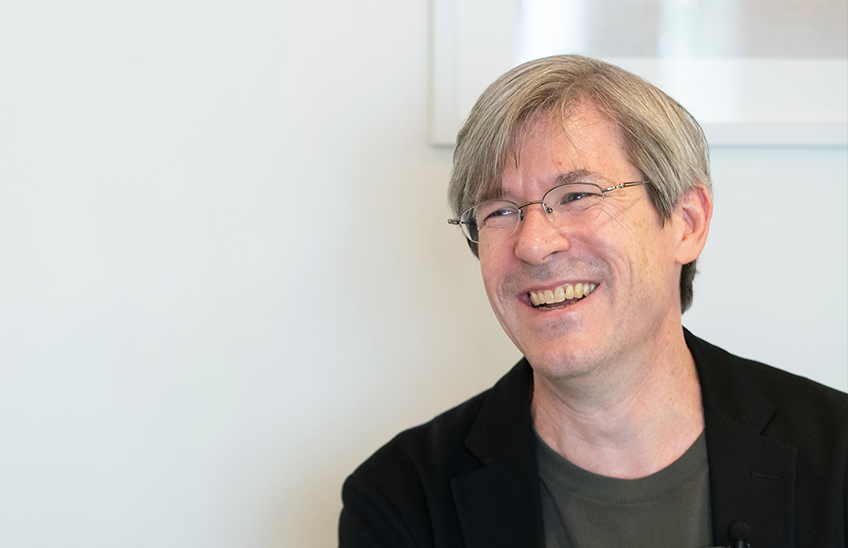
Darcy Paquet is an American film critic and subtitle translator who specializes in Korean cinema.
For “Parasite,” you and Bong jointly revised the final version of the subtitles. What was that process like?
I typed up the subtitles for about a week and a half. We sent some emails back and forth. Afterwards, there were two days of long meetings with the director, the producer, me and several people from the distribution company. They all spoke English and offered suggestions. It was helpful to have a group of us thinking together about the challenging parts of the translation.
In one scene, a woman calls a dish “jjapaguri” but the subtitle says “ramdon.” Is it true that this was the hardest term to translate?
I was embarrassed because I made up this word “ramdon.” I thought people would laugh at me for it, but it works in the film. The word is first used during a phone conversation. Later, as one character prepares the food, we see the packages on the screen and I wrote “ramyeon” and “udon” over them to show how ramdon came about. I did actually Google ramdon before writing it and nothing came up. It appears to not be a word in any language at all.
Was there a reason you translated “Seoul National University” as “Oxford?”
I think Bong likes England a lot. I’ve been joking about this as well, but when I was a high school student, I applied to Harvard and didn’t get in. Jokes aside, I think Harvard is too obvious a choice. It’s more memorable when you say Oxford.
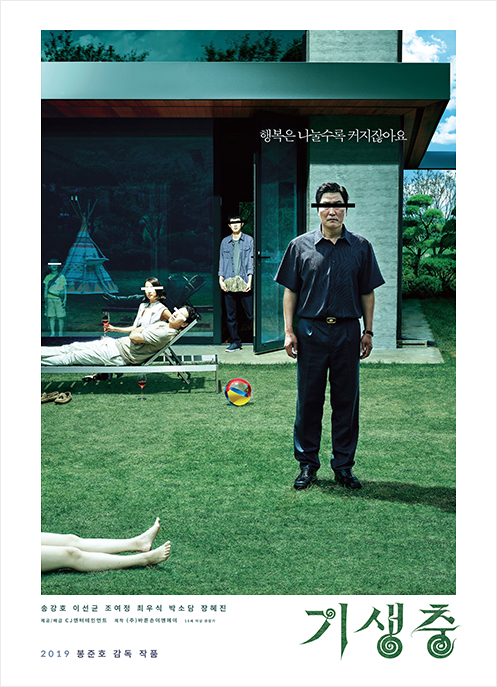 The acclaimed movie “Parasite” features English subtitles translated by Paquet.
The acclaimed movie “Parasite” features English subtitles translated by Paquet.© CJ Entertainment
 In the film, Ki-woo interviews for the job of private English tutor for a rich family despite lying about his academic background. © CJ Entertainment
In the film, Ki-woo interviews for the job of private English tutor for a rich family despite lying about his academic background. © CJ EntertainmentDo you like working on comedies?
One of the most satisfying things to watch for me is a well-made comedy. In a way, “Parasite” is like that. It’s much more than just a comedy but has a lot of comic elements. As a translator, comedies are a fun challenge because timing is so important.
You’ve also translated subtitles for movies by other famous directors. Which of them had a process that was noticeably different?
Working with Park Chan-wook was quite memorable because he likes wordplay. Park has said he was influenced by a 1960s director, Kim Ki-young, who uses strange but very expressive dialogue in his films, so I think Park tries to do something similar. Whereas other directors might want something very smooth and natural, Park was fine if it felt a bit artificial but he wanted to preserve the wordplay and creative things in the original language.
Were you pleased with how your subtitles turned out for Park Chan-wook’s psychological thriller “The Handmaiden?”
I do like the final product. The film itself is visually so beautiful, and director Park is so good at controlling mood and tempo. When you put the subtitles into it, it’s thrilling for me to see the words I came up with blend in with such great filmmaking.
What advice do you have for people wanting to break into subtitle translation for big-time directors?
Translating is a tough job because it’s a lot of work. It’s not that well paid and it needs a certain kind of personality because it’s never perfect. Compared to the original, it’s never going to be exactly what you want it to be. The biggest challenge is writing in a very compact way. The first time you do it, it’ll be very difficult but the more you do it, the better you’ll get at it. I’d recommend reading a lot and being conscious of language as you go through life. Listen to the language that people use.
If it’s hard to get a first job, there are lots of independent filmmakers who are making short films that need help. So if you can contact one of them and gain some experience, you can later move on to bigger projects.
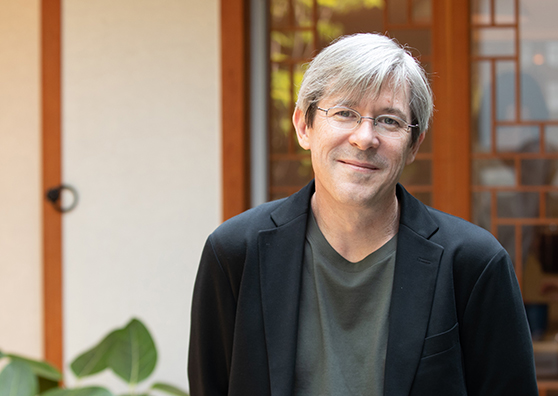
Profile
Darcy Paquet
| 1999 | Launched Koreanfilm.org |
| 2001-08 | Korea news correspondent for Screen International |
| 2003-11 | Columnist for Korean film weekly Cine 21 |
| 2008-present | Adjunct professor, Kyung Hee University (Dept. of Film & Theater) |
| 2009-present | Adjunct professor, Korea University (Summer course on Korean cinema) |
| 2013-present | Director of Wildflower Film Awards Korea |
Other Articles















